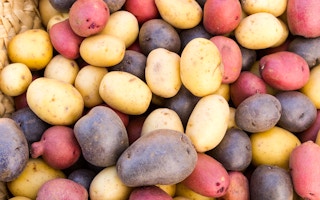A warming climate may confront any of us with unfamiliar problems. The upside, though, is that people half a world away from each other may already have some answers.
Small-scale farmers on two continents – from Yunnan in China and from Bhutan and Peru − are now working together to help their communities to adapt to the impacts of a hotter world.
They have agreed to share indigenous crop varieties, and the knowledge needed to grow them in different climates and landscapes, in a scheme that aims to maintain resilient food systems relying on a number of crops, not simply monocultures.
The aim is also to provide the farmers with secure access to seeds each season, and to protect “food sovereignty”, so that they retain control of their harvests without agribusiness intervening.
Food security
The agreement was reached in late April at a meeting in the Potato Park, near the high-altitude Peruvian city of Cusco. The Park conserves 1,460 different potato varieties to protect food security in the face of climate change.
“
This partnership represents a unique alliance forged by indigenous peoples to overcome the threats to agriculture and food security in a changing climate
Alejandro Argumedo, director of Asociación ANDES
For the moment, the agreement involves only potatoes, although other species may be included later. The tubers themselves will not be swapped, but only in vitro material – with scientists from Peru‘s International Potato Center (CIP) in Lima alert to preventing any unwitting transfer of parasites or diseases.
“This partnership represents a unique alliance forged by indigenous peoples to overcome the threats to agriculture and food security in a changing climate,” said Alejandro Argumedo, the director of not-for-profit Asociación ANDES, one of the scheme’s organisers.
He told the Climate News Network that there was no comparable scheme “with this particular focus on climate change adaptation and biocultural heritage innovation as key to resilience”.
Yiching Song, from the Center for Chinese Agricultural Policy of the Chinese Academy of Sciences, said: “Although our communities are half a world apart, they share similar concerns. Communities are stronger working together than apart.”
The head of CIP’s Gene Bank, David Ellis, said: “Achieving sustainable food security in a world with a growing population, changing diets and a changing climate is a major challenge. Alliances among farming communities and scientists, such as this one, are a critical element in the response to these challenges.”
Planting line
Farming communities in all three countries are already being affected by climate change, the scheme’s organisers say. They are experiencing higher temperatures, leading to more pests and reduced water availability. For example, in the Potato Park, high in the Peruvian Andes, glaciers are melting, and the top of the planting line has been reached, so farmers are having to find new areas to plant the potatoes.
Krystyna Swiderska, an agro-ecologist at the London-based International Institute for Environment and Development, which helped to fund the farmers’ meeting, told the Network that the agreement was concentrating on species that would grow well in mountain conditions.
She said: “The focus will be on crops that perform well in harsh environments prone to droughts, frost, flooding, pests and so on, and on increasing diversity. The greater the diversity of crops th at communities have, the greater the chances of growing food in the face of increasingly extreme weather.”
Swiderska said Peru, Bhutan and China shared similar basic cultural values and traditional farming systems. The three countries also had been involved because they are participating in the Mountain Communities Initiative (MCI) meeting in Bhutan on climate change impacts, in the last week of May.
She believes that the Cusco agreement could work elsewhere. “The transfer of knowledge will be replicated at the MCI, which will involve 14 communities from 10 countries,” she said. “The transfer of seeds has not happened yet, but could potentially be replicated in other communities participating in the MCI and beyond.”

















